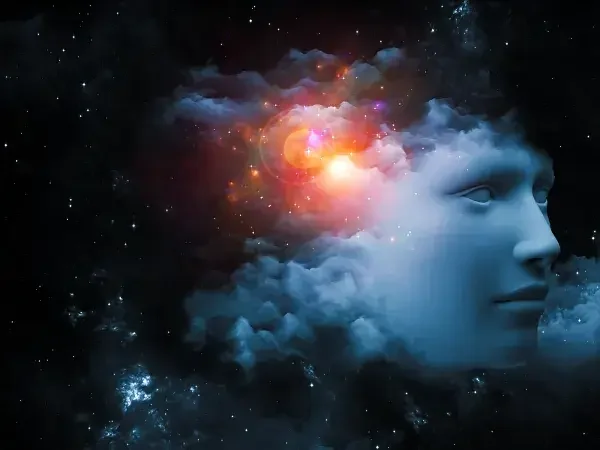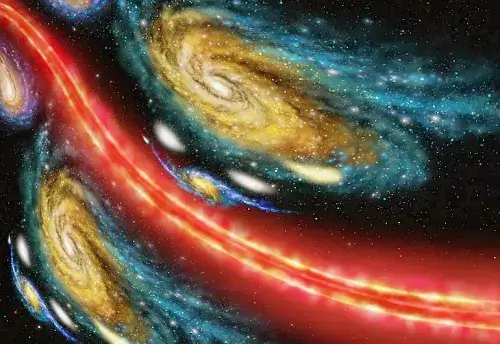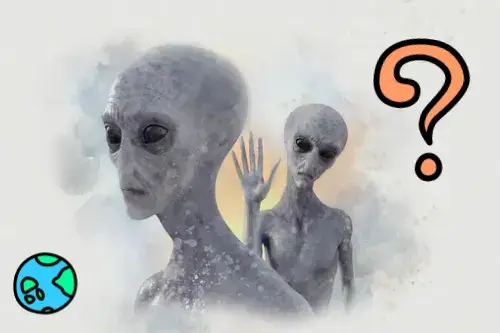God or Creator. How Did It All Start? The origin of the universe remains one of the most profound and debated questions in both science and philosophy. Among the most widely accepted scientific theories is the Big Bang theory, which posits that the universe began approximately 13.8 billion years ago from a singularity.
This enormous explosion marked the rapid expansion of space, leading to the formation of galaxies, stars, and planets.
The cosmic microwave background radiation, which can be detected today, serves as evidence supporting this theory, providing a snapshot of the hot, dense state of the early universe.
God or Creator, philosophical perspectives.
In contrast to this scientific explanation, various philosophical perspectives offer alternative insights into existence. Many ancient cultures and philosophies suggest that the universe was created by a divine force or a primordial being.
These views, while non-scientific, attempt to provide a sense of meaning and purpose to human existence.
For instance, in theistic models, the creation is often viewed as an intentional act, suggesting that there is a conscious creator behind the grand design of the universe.
Such interpretations can deeply influence humanity’s understanding of their place within this vast cosmos. The implications of these theories go beyond intellectual exploration; they challenge us to consider our existence in the larger context of the universe.
Understanding the origins of everything around us invites reflections on humanity’s place in the grand narrative of existence.
The quest to comprehend how it all started drives scientific inquiry and fuels philosophical discussions. It highlights not only our innate curiosity but also our desire to seek deeper truths about life, purpose, and the universe itself.
As we explore these origins, we ultimately engage in an ongoing dialogue with the cosmos, reflecting on the mysteries that have yet to be unveiled.
Cosmos, who is behind the Universe?
The question of who or what created the universe is a profound one that has been debated across cultures and civilizations for millennia. Various religious and spiritual traditions offer diverse interpretations of a higher power, which is often referred to as “the Creator.”
For example, within the Judeo-Christian tradition, God is viewed as the omnipotent force responsible for the existence and order of the universe, reflecting a belief in a purposeful creation.
Similarly, in Hinduism, the concept of Brahman represents an all-encompassing divine presence, highlighting the interconnectivity of existence and creation. Each of these perspectives addresses humanity’s quest for understanding its origins and purpose.
On the other hand, scientific perspectives on creation challenge traditional beliefs by proposing theories grounded in empirical evidence.
The Big Bang theory, for instance, posits that the universe began approximately 13.8 billion years ago from an immensely dense and hot state, leading to its current expansive form.
This scientific model prompts discussions surrounding the origin of matter and energy, presenting an alternate framework to the notion of a conscious Creator. The interplay between scientific inquiry and theological interpretation reveals the complexities of understanding existence itself.
The dialogue on the existence of a Creator thus remains a nuanced and multifaceted discourse that influences not only individual beliefs but also collective cultural narratives.
The implications of accepting or rejecting the notion of a higher power foster reflections on morality, purpose, and humanity’s role within the cosmos.
Contrasting views enrich this ongoing conversation, encouraging us to reflect on our beliefs and the possible existence of something greater than ourselves. As both science and spirituality seek to answer this ancient query, the exploration of who or what created the universe continues to captivate and inspire us.
The Laws of Physics.
Why Exactly This Way?
The fundamental laws of physics form the cornerstone of our understanding of the universe, determining how matter and energy interact. These laws, which include concepts such as gravity, electromagnetism, and quantum mechanics, dictate everything from the motion of planets to the behavior of subatomic particles.
One particular area of interest is why these laws are structured in the particular way they are, prompting profound questions about the nature of existence itself.
The anthropic principle offers a compelling perspective on this inquiry. It posits that the universe’s fundamental parameters are conditioned by the necessity for life to exist.
This implies that if the values of certain physical constants were even slightly different, human life—or life as we know it—might not be possible.
This perspective suggests that the universe’s laws might not be arbitrary or coincidental but instead finely tuned to support the emergence of conscious beings.
Such a realization encourages us to ponder whether these laws are a deliberate aspect of creation designed to foster life or simply the outcome of chance within the vast, chaotic framework of existence.
Strings.
Another fascinating framework is string theory, which proposes that the fundamental constituents of the universe are not point-like particles but rather one-dimensional “strings.”
This theory attempts to unite the various forces of nature into a single theoretical framework. While string theory is still in the developmental stage and lacks experimental confirmation, it raises important questions about the underlying structures governing the universe.
Are these laws an essential aspect of the cosmos, or could they arise from more basic entities and principles?
Ultimately, the inquiry into the nature and structure of physical laws intertwines with philosophical reflections on existence itself.
Both science and philosophy converge in their attempts to unravel the mysteries of why our universe is governed by these specific laws, highlighting a human curiosity that persists through the ages.
Time, Illusion or Reality?
The nature of time has fascinated philosophers, scientists, and theologians for centuries, leading to the profound inquiry: is time a tangible dimension or merely an intricate illusion?
Historically, time has been measured by celestial movements, such as the rotation of Earth and the revolution around the sun. However, as our understanding of the universe has evolved, so too has our perception of time, raising significant questions about its essence.
Philosophers like Immanuel Kant argued that time is not an external entity but a mental construct, essential for us to make sense of our experiences.
In this view, time becomes a framework we impose upon the chaotic nature of existence.
Conversely, physical theories propose that time is a measurable dimension within the fabric of spacetime, integral to the laws governing the universe.
This duality encapsulates the ongoing debate: is time relative, as suggested by Einstein’s theory of relativity, or is it absolute and universally experienced?
Moreover, it begs further contemplation on how a creator might perceive time. If a divine entity exists outside the confines of our universe, does it experience time as we do?
This perspective shifts the conversation from temporal measurement to existential implications. Are beginnings and ends constructs that illuminate the human condition or fundamental aspects of a grand design?
Such inquiries lead us to grapple with concepts of eternity, suggesting that our finite understanding of time may merely scratch the surface of deeper realities.
As we explore these philosophical and scientific dimensions, we encounter a myriad of interpretations regarding time’s role in existence. The perception of time could significantly influence our understanding of the universe and our place within it.
Embracing the complexities of time invites a wider exploration of existence itself, challenging us to reflect on our own experiences and beliefs regarding this enigmatic phenomenon.
However, the main question that created it all remains unanswered!
Maybe?








Save our my Soul!
God exists! He is our creator! Amen